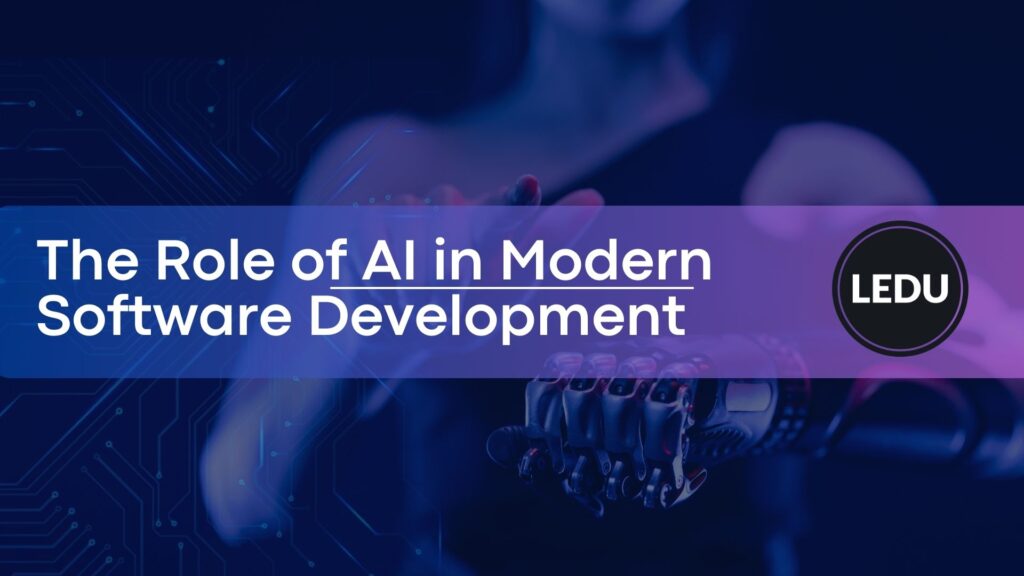
Understanding the Software Development Lifecycle (SDLC)
The SDLC includes phases like planning, requirement analysis, design, development, testing, deployment, and maintenance. Each phase presents unique challenges that AI can help address.
AI in Requirement Analysis
AI plays a crucial role in the software development lifecycle by enhancing requirement analysis through the automatic extraction of data from various sources. This capability ensures more accurate and comprehensive requirements. Furthermore, AI can predict potential issues early on, thereby assisting teams in making informed decisions. Consequently, the integration of AI not only streamlines the analysis process but also contributes significantly to the overall efficiency and effectiveness of software development.
AI in Software Design
AI assists in software design by automating the creation of design prototypes and, consequently, optimizing them based on user behavior data. As a result, this leads to more user-centric designs. Additionally, by leveraging AI, teams can iterate more rapidly and refine their designs more effectively, ultimately enhancing the overall user experience.
AI in Coding and Development
By generating code snippets and detecting bugs, AI tools significantly speed up the coding process while simultaneously improving code quality. Moreover, these tools streamline development workflows, allowing developers to focus on more complex tasks. Consequently, the overall efficiency of the coding phase is greatly enhanced.
AI in Testing and Quality Assurance
Automating testing, these tools run extensive test cases quickly and accurately. Furthermore, they identify potential failures and automate regression testing, which ensures that new changes do not affect existing functionality. As a result, the reliability and stability of the software are significantly improved.
AI in Deployment and Maintenance
Streamlining deployment and maintenance, these systems automate processes, predict when maintenance is needed, and continuously monitor software performance. Consequently, they enhance operational efficiency and ensure the software remains robust and reliable over time.
AI in Project Management
AI-driven tools enhance project management by predicting risks, assisting in planning, and improving team collaboration.
AI in Security
Driven by advanced technology, tools enhance project management by predicting risks, assisting in planning, and improving team collaboration. As a result, they help ensure projects are completed on time and within scope, while also fostering better communication among team members.
AI in User Experience (UX)
By personalizing user interfaces and suggesting design improvements based on user behavior, these tools make software more intuitive and engaging. As a result, they enhance the overall user experience and improve the software’s effectiveness and usability.
Challenges and Limitations of AI in SDLC
Despite its benefits, AI poses challenges such as ethical concerns, potential biases, and the need for human oversight. Privacy concerns and security challenges continue to be major issues.
The Future of AI in Software Development
AI’s role in software development is set to grow, with emerging trends suggesting even greater integration across the SDLC. As AI continues to automate many tasks, human developers will remain essential for guiding these systems. The future of AI in software development promises even more advanced capabilities, driving innovation and efficiency throughout the entire lifecycle.
Conclusion
AI is revolutionizing the software development lifecycle by making processes more efficient and reliable. However, balancing AI’s use with human oversight and ethical considerations is crucial for future success.
FAQs
How does AI improve software development?
AI automates processes, enhances accuracy, and speeds up development.
Can AI replace human developers?
No, human developers are still essential for strategic decisions and guiding AI.
What are the risks of using AI in SDLC?
Risks include biases, privacy concerns, and the need for human oversight.
What does the future hold for AI in software development?
AI will continue to play a crucial role, but human developers will remain vital.
